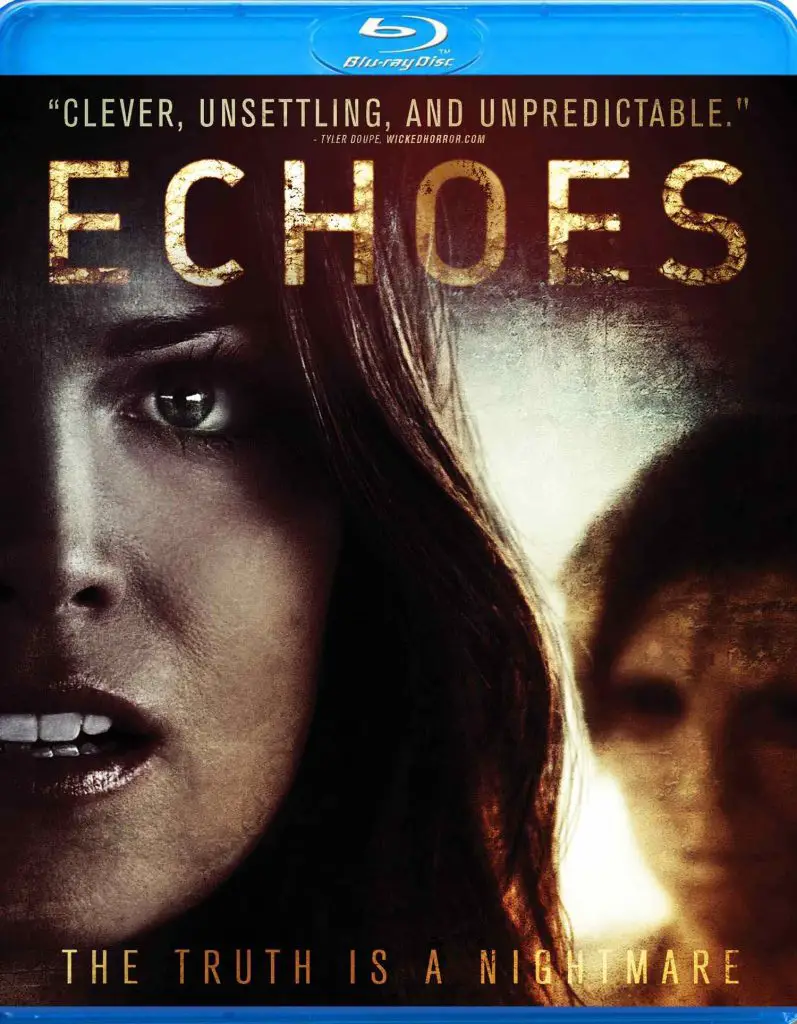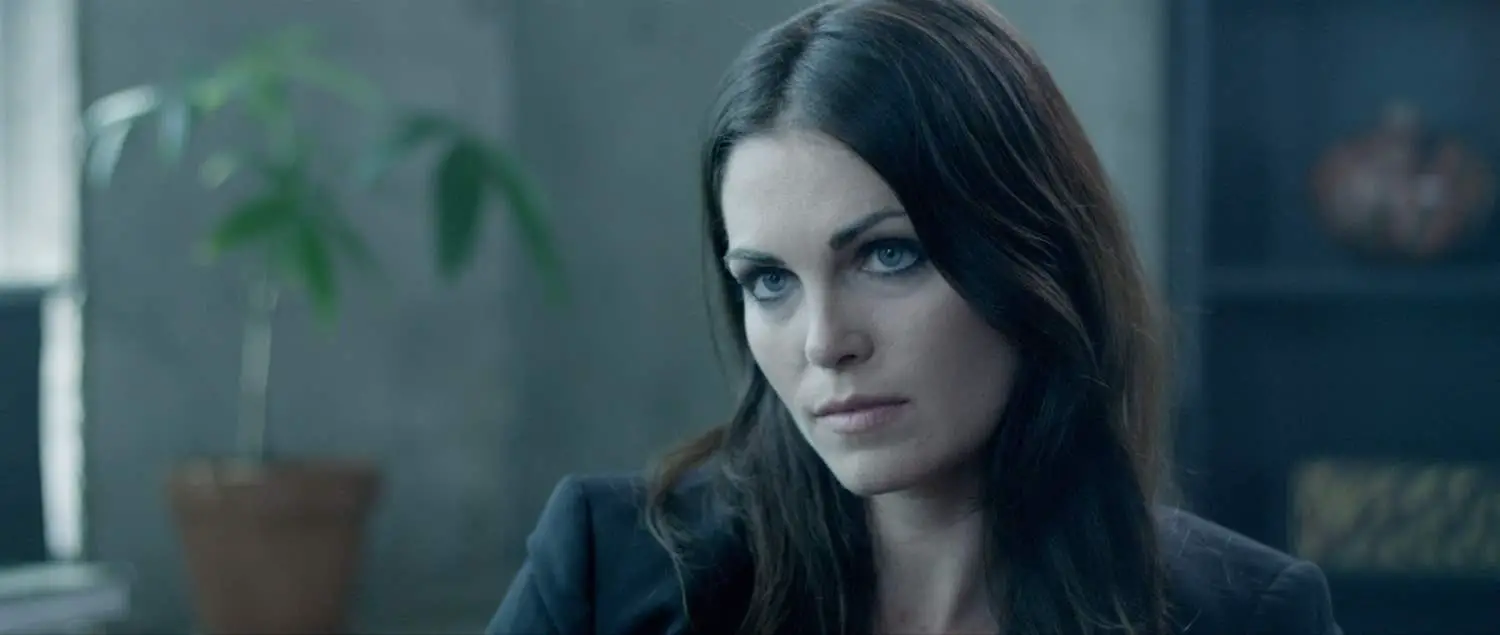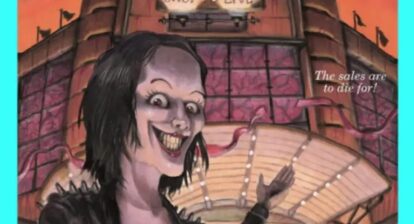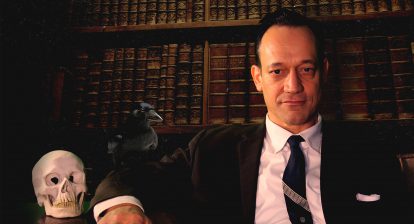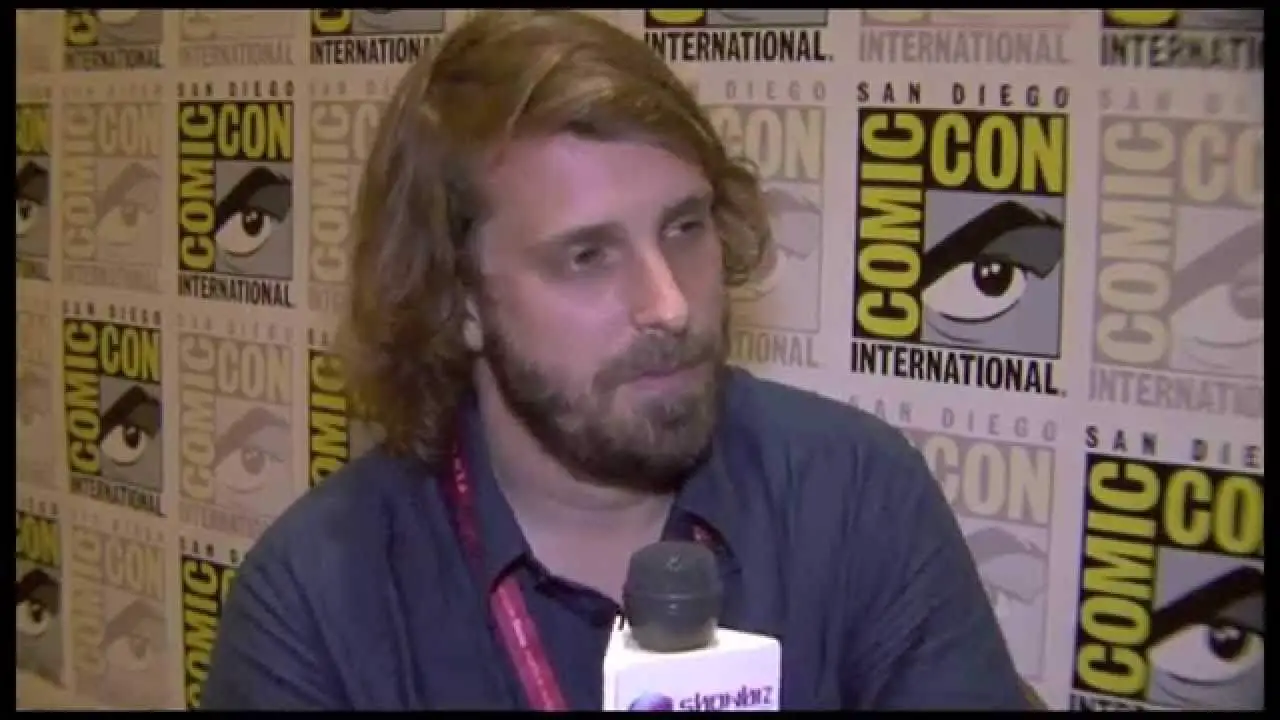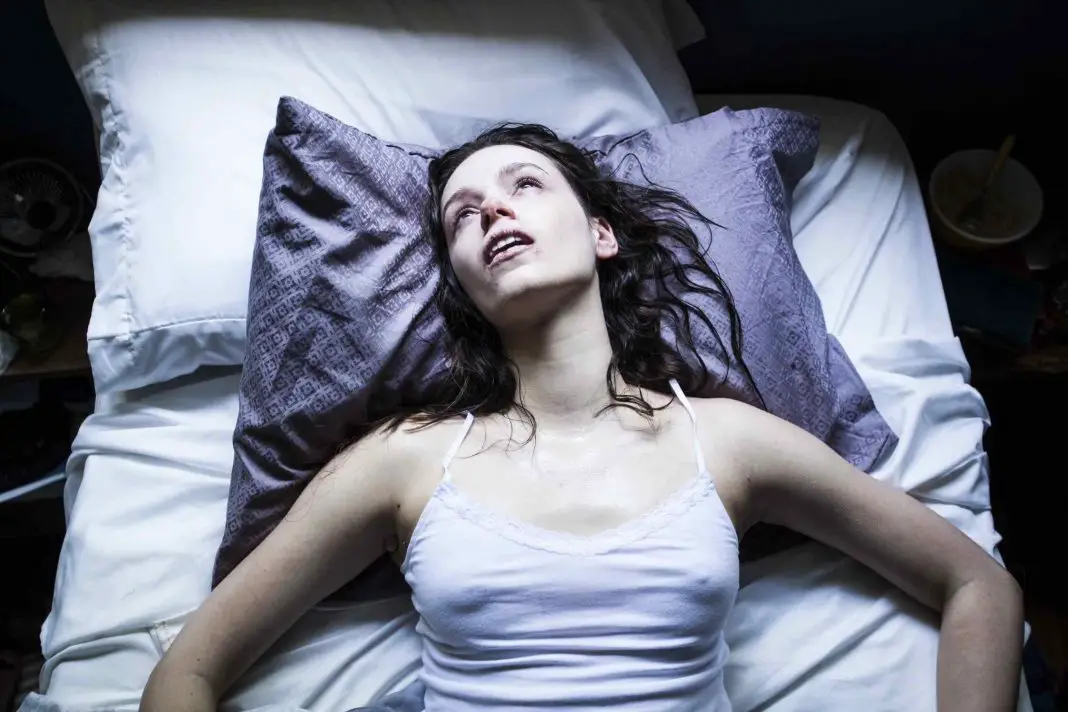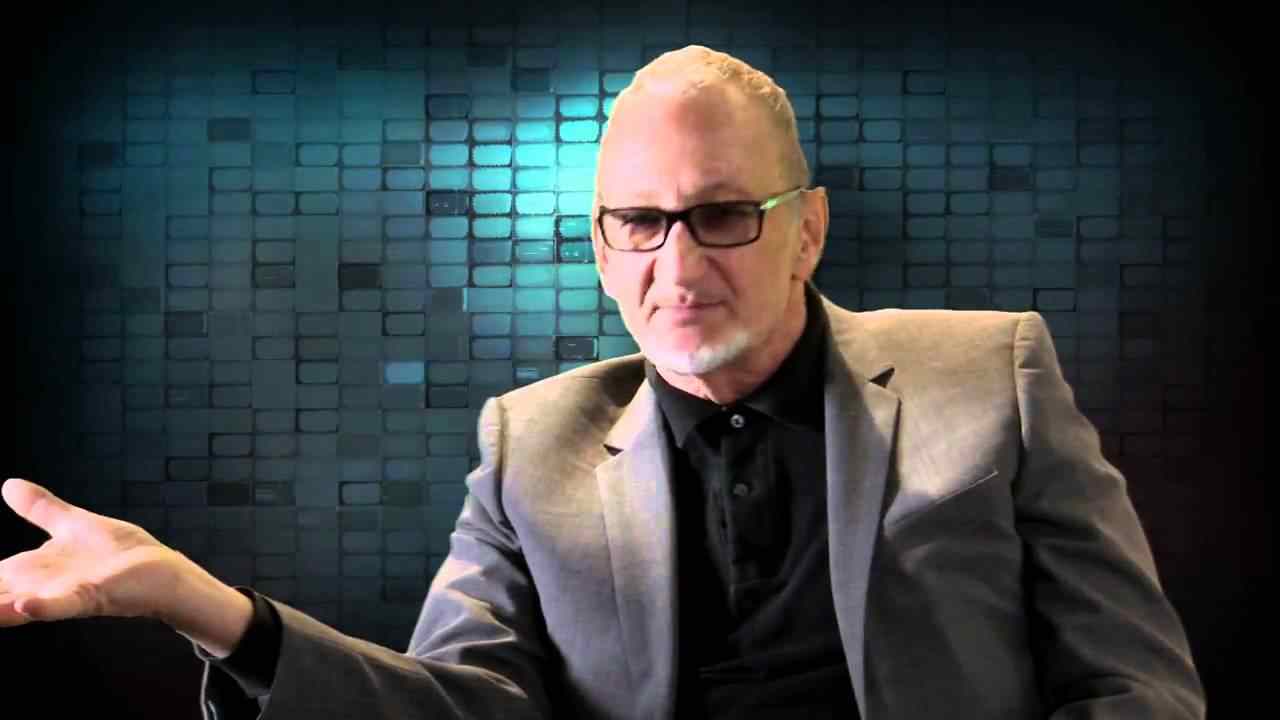Wicked Horror recently had the opportunity to chat with Nils Timm, the director of the psychological horror thriller Echoes. During our conversation, he filled us in on his inspiration for making a film about sleep paralysis, talked about how the film doesn’t fit neatly into any one genre, and commented on why compromise to your creative vision is an inevitability at any budget level.
Echoes follows Anna, a screenwriter and blogger who suffers from sleep paralysis. When she travels to her boyfriend’s desert vacation home, she is immediately plagued by nightmares and the feeling that she is being watched. But when her boyfriend is called back to the city, she opts to stay behind to work on her script. The nightmares become more intense and she becomes convinced that the house is hiding a terrible secret. Echoes is now available on DVD and Blu-ray.
Wicked Horror: I think Echoes falls into an emerging trend of films that don’t neatly fit in a specific genre or sub-genre. It’s not a straight horror film. And it’s not strictly a psychological thriller or drama. But it has elements from all of those genres. How do you think of it?
Nils Timm: I agree with you. I kind of look at it from the point of a mystery suspense movie. It has horror elements. It has suspense elements. It has psychological thriller elements. That’s the big one in there. You know, I hope with this movie that we can reach a wider audience than one specific corner. It’s not just a slasher or horror film. I hope that anyone from any of these different genres can enjoy this in the bigger realm of psychological horror, mystery, suspense. That was just important to me and I hope with any film that I can make movies that people from all different kinds of backgrounds can appreciate.
Wicked Horror: It felt like the house itself was very much its own character. It adds a lot to the picture as a whole. What inspired you to set the bulk of the film in a clear glass house?Timm: Typically, in haunted house movies, you are in this old Victorian mansion or some old castle or in some dark house in the woods. And I kind of wanted for the whole film, not just the house, but the environment to be the opposite. Which is you are in an open desert, isolated, lonely. It’s bright instead of dark. So, that can be very chilling. I’ve visited the desert many times and shot many things there. So, I’m familiar with the environment and the house, of course, being kind of clinical and sleek and modern…The whole production design of the house…Our production designer Ditte Halleskov did a great job with a lot of these things. You want this house to look very cold and stylized and clean and open with the glass. It’s a great metaphor for someone who has issues about what’s real and what’s not. To be sitting in a glass house, we’re looking into her mind, so that metaphor kind of worked with that type of house. I spent some nights sleeping in that house in preparation and it really helps you to imagine. It’s very chilling to be that exposed. It’s beautiful but at the same time, it’s horrific. If you’re sleeping there, you know that anything can just walk up to the glass and just stare at you while you’re sleeping there.
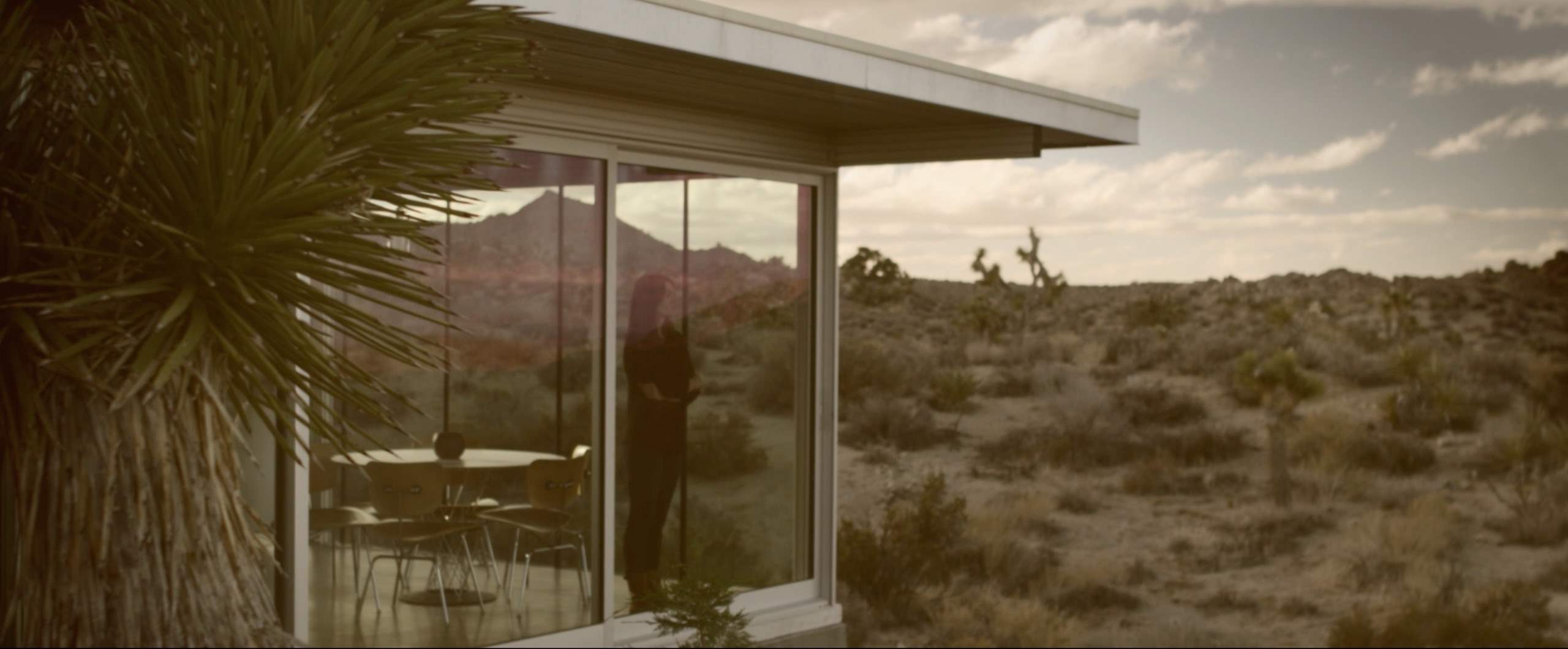 Wicked Horror: Another thing that I thought really worked well was the sleep paralysis element. That was quite terrifying. And it’s something that people deal with in real life. What got you interested in the subject?
Wicked Horror: Another thing that I thought really worked well was the sleep paralysis element. That was quite terrifying. And it’s something that people deal with in real life. What got you interested in the subject?
Timm: I started researching lucid dreams when I first had the idea for this movie. I was kind of experimenting with that myself and along the way, I learned about sleep paralysis and I interviewed a lot of people. People don’t really talk about this because they don’t really know how to categorize it. They don’t know what it is but you’ll find that like one in six or seven people have experienced this. They told me about their experiences and how it feels. One person described it as kind of being exposed to the g-force of a rollercoaster. You feel like you can move but you can’t because some force is holding you back in your seat. So, that was very influential. I thought it was a great way to get into a story about what’s real and what’s not real. These people with sleep paralysis experience what they call hypnagogic hallucinations. And those are hallucinations that are just as real as everything that you see. It’s stronger than any drug, I suppose. But it’s fascinating what the brain does to you.
Wicked Horror: There’s a very claustrophobic quality to the film. The house is wide open and in the middle of a desert but it still makes the viewer feel confined and trapped. How did you, as a director, go about fostering that sensation?
Timm: Atmosphere is very important for me. Films that influence me a lot are movies like the first Alien film is definitely one of my favorite films for the tone. I like the older Roman Polanski films like Rosemary’s Baby. It’s all about atmosphere and sounds in combination with visuals. You don’t have a lot of dialogue but you can just feel. Not getting into too many technical details but it really comes down to what lenses you chose. The Shining is one of my favorite films. Just look at how the lenses and colors work to convey that feeling of unease that’s constantly there. That really comes from a big graphic skill and a very sensitive ear, I believe. My own background is in photography. So, I spent a lot time and care designing the shots to give it that feel. Hopefully it worked.
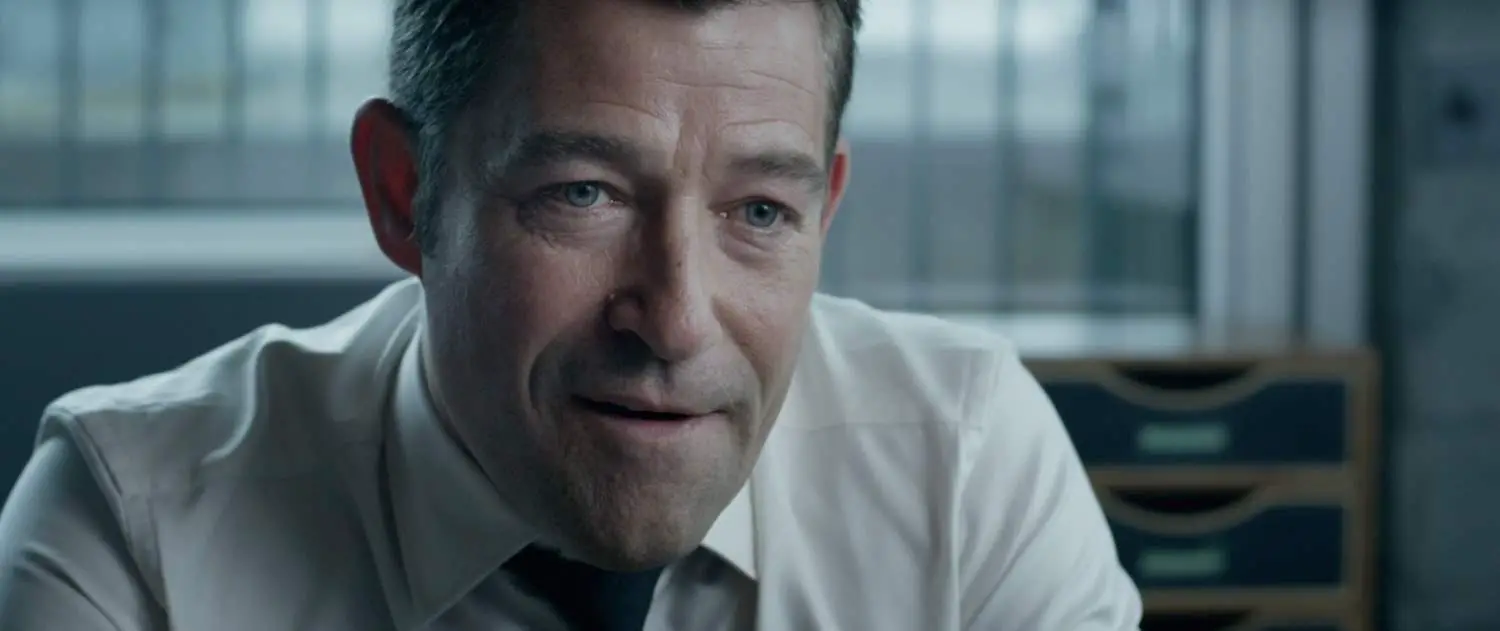 Wicked Horror: You worked as the writer and director as well as a producer on the film. That should theoretically afford you about as much creative control as a person could ask for. As such, did you feel like you had to compromise your vision in any way?
Wicked Horror: You worked as the writer and director as well as a producer on the film. That should theoretically afford you about as much creative control as a person could ask for. As such, did you feel like you had to compromise your vision in any way?
Timm: That’s a tricky question because it has pros and cons. It definitely drives you crazy if you are a producer. I had help from Aaron Harvey and Ditte Halleskov who produced the movie with me. But I think writing your material as a director is very helpful because you have such a deep understanding of it. With a movie like this you have to consider that you have a fraction of the budget of other films that look and feel this way. Obviously you have to compromise but directors with bigger budgets have to compromise. It’s part of the nature of filmmaking and it’s part of your job as a director to kind of problem solve and to be creative enough to walk into a set every morning and have a plan for what you’re going to but not be stuck on that plan too much if things don’t work out that way. Of course we had a very well prepared shoot that went mostly smooth but you are very limited. Sometimes that can be creatively a good thing because you are forced to think other ways. But obviously you want to have more time. That’s always the thing you want so you can really get everything perfect in the best way you want. But that is the nature of filmmaking and you have to make sure that by the end of the day that you really get what you need. And I hope that we did that for the most part.
